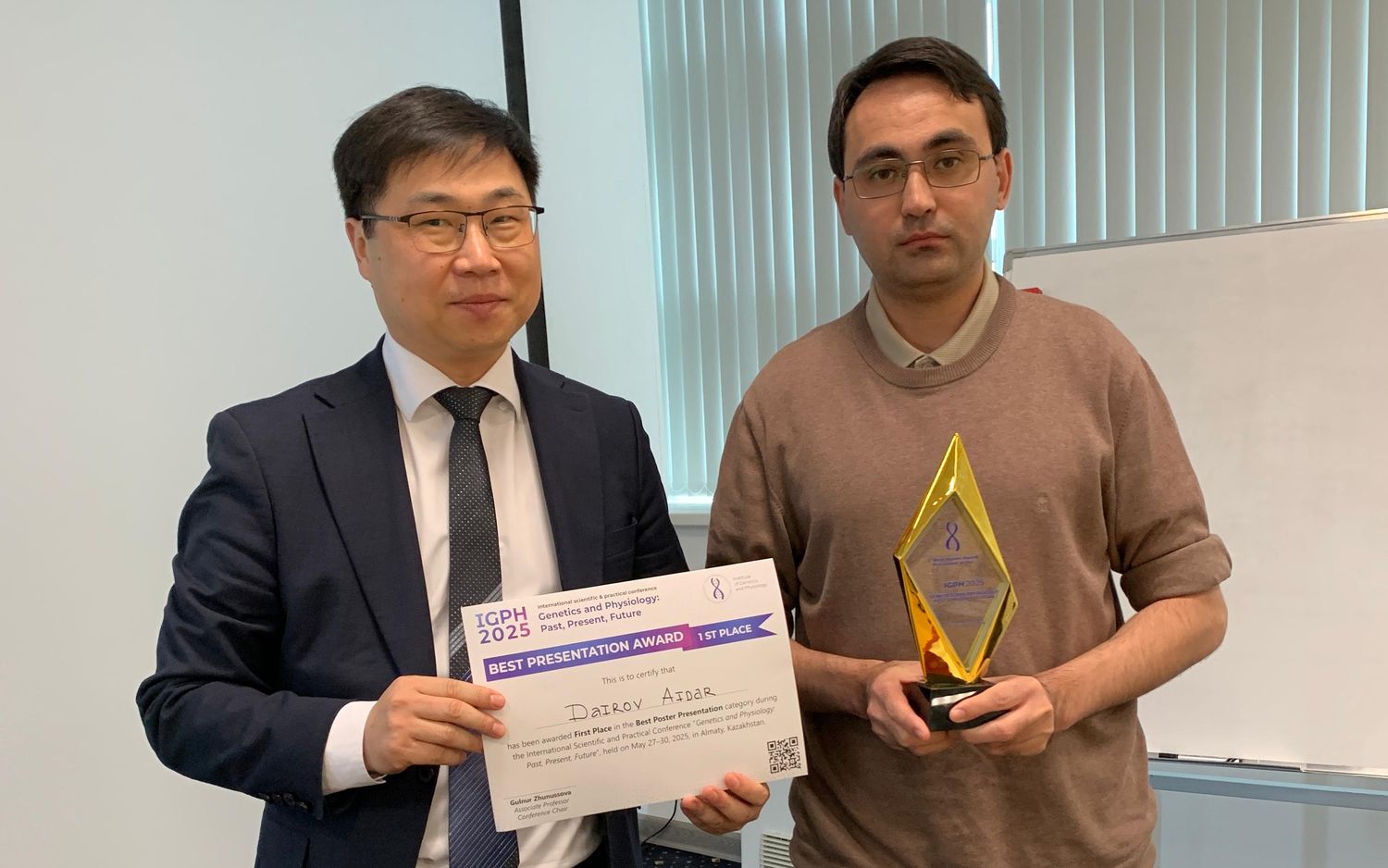
03.06.2025
157
The International Scientific and Practical Conference “Genetics and Physiology: Past, Present, Future” (IGPH2025) was held in Almaty from May 27 to 30, 2025, dedicated to the 30th anniversary of the founding of the Institute of General Genetics and Cytology and the 80th anniversary of the Institute of Human and Animal Physiology. The conference was attended by prominent scientists and experts from research centers, institutes and universities of Kazakhstan, as well as from neighboring and distant countries. Scientists from the National Center for Biotechnology also presented reports at the conference: Candidate of Biological Sciences Ogay V.B., Candidate of Biological Sciences Manabayeva Sh.A., Candidate of Biological Sciences Zholdybayeva E.V., PhD Kulmambetova G.N. and PhD Zhabagin M.K.
The conference covered a wide range of research areas, including the utilization of genetic resources of plants, animals, microorganisms, and viruses; genetic and physiological aspects of human, animal, and plant interactions with environmental factors; the application of genetic and physiological approaches in sports; space physiology; the study of ancient and modern DNA; molecular-genetic, biochemical, and physiological research; as well as the development of new bioinformatics and genomic technologies.
As part of the conference, Aidar Dairov, a researcher at the Stem Cell Laboratory of the National Center for Biotechnology and a second-year PhD student at the Department of General Biology and Genomics of L.N. Gumilyov Eurasian National University in the educational program “8D05107-Biology,” presented a poster presentation. Topic of the poster presentation: “Study of the therapeutic effect of cytokine-preconditioned mesenchymal stem cells and their exosomes in a mouse model of psoriasis”. In his presentation, Dairov A.K. spoke in detail about the experimental part of the study, which investigated the therapeutic effectiveness of human umbilical cord-derived mesenchymal stem cells (hUCB-MSCs) and their exosomes (hUCB-MSC-Exo) in a model of imiquimod (IMQ)-induced psoriasis-like skin inflammation in laboratory mice. To enhance the anti-inflammatory properties of these cells, they were preconditioned with a combination of pro-inflammatory cytokines: interleukin (IL)-17A, IL-22, and tumor necrosis factor alpha (TNF-α).
The poster presentation illustrated the currently known molecular mechanisms of action of MSCs and their exosomes in modulating the inflammatory response, and also contained a detailed study design aimed at assessing their therapeutic effect in an IMQ-induced psoriasis-like inflammation model in mice. The poster presented the results of assessing inflammation severity using the PASI (Psoriasis Area and Severity Index), spleen index, and histological analysis of skin samples. The experimental data confirmed a significant reduction in the inflammatory response and improvement in clinical symptoms in mice treated with both intact and preconditioned MSCs and their exosomes. The most significant anti-inflammatory effect was demonstrated by hUCB-MSC-Exo preconditioned with a combination of the proinflammatory cytokines IL-17A, IL-22, and TNF-α. The poster also included information about publications by A.K. Dairov and co-authors in this field. The presentation generated significant interest among the conference participants, including master’s and PhD students, young researchers, as well as leading experts in the field of biomedicine. The interactive discussion of the presented work contributed to an exchange of experiences and the establishment of new professional contacts.
Among the many posters presented at the conference, the poster presentation by Dairov Aidar was highly appreciated by the expert jury and recognized as the best. Following the conference, it was awarded first place in the category “Best Poster Presentation”. This success not only underscored the scientific significance of the conducted study but also opened new prospects for further research into the therapeutic properties of preconditioned MSCs and their exosomes in the treatment of psoriasis and other autoimmune diseases.